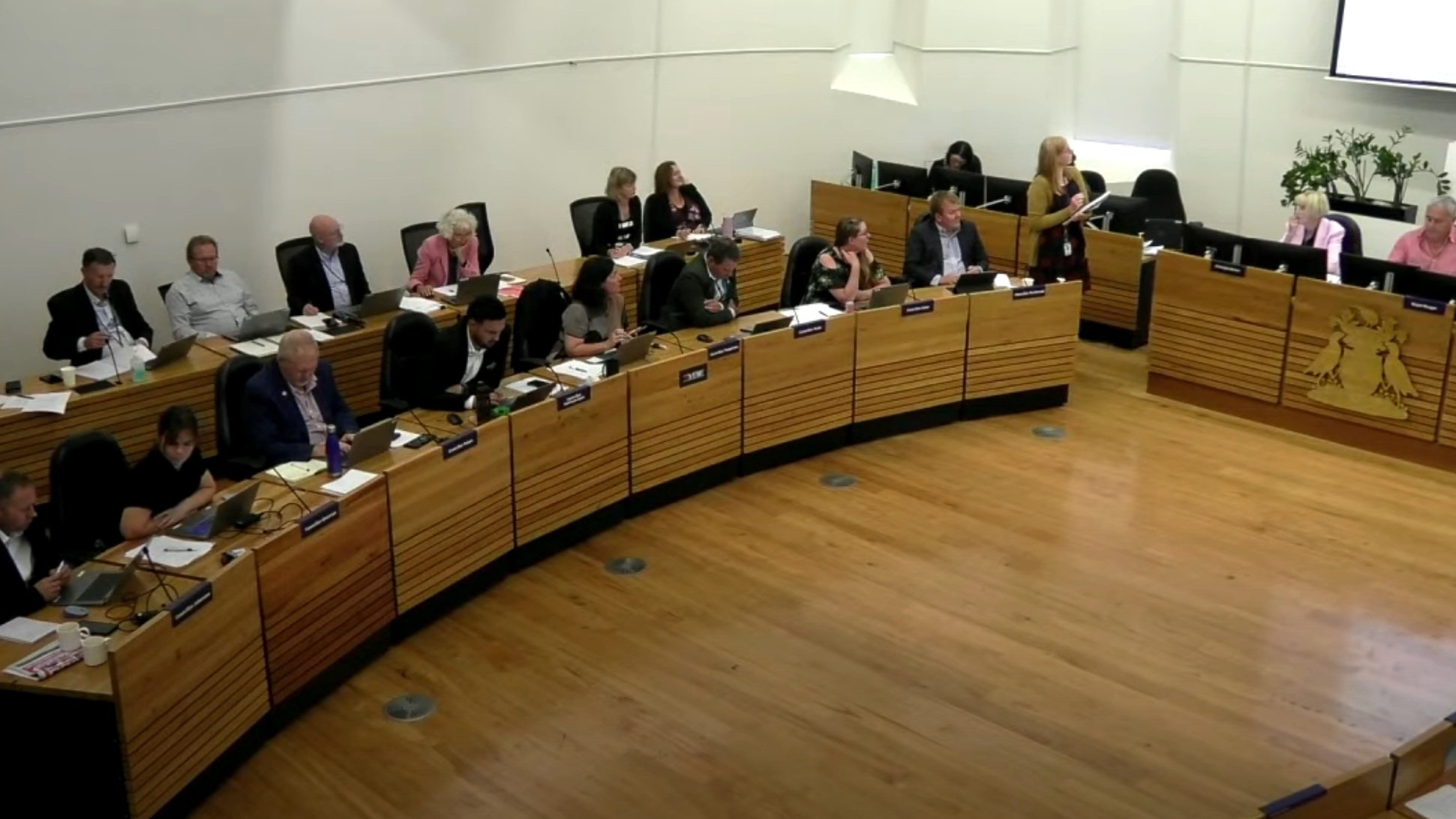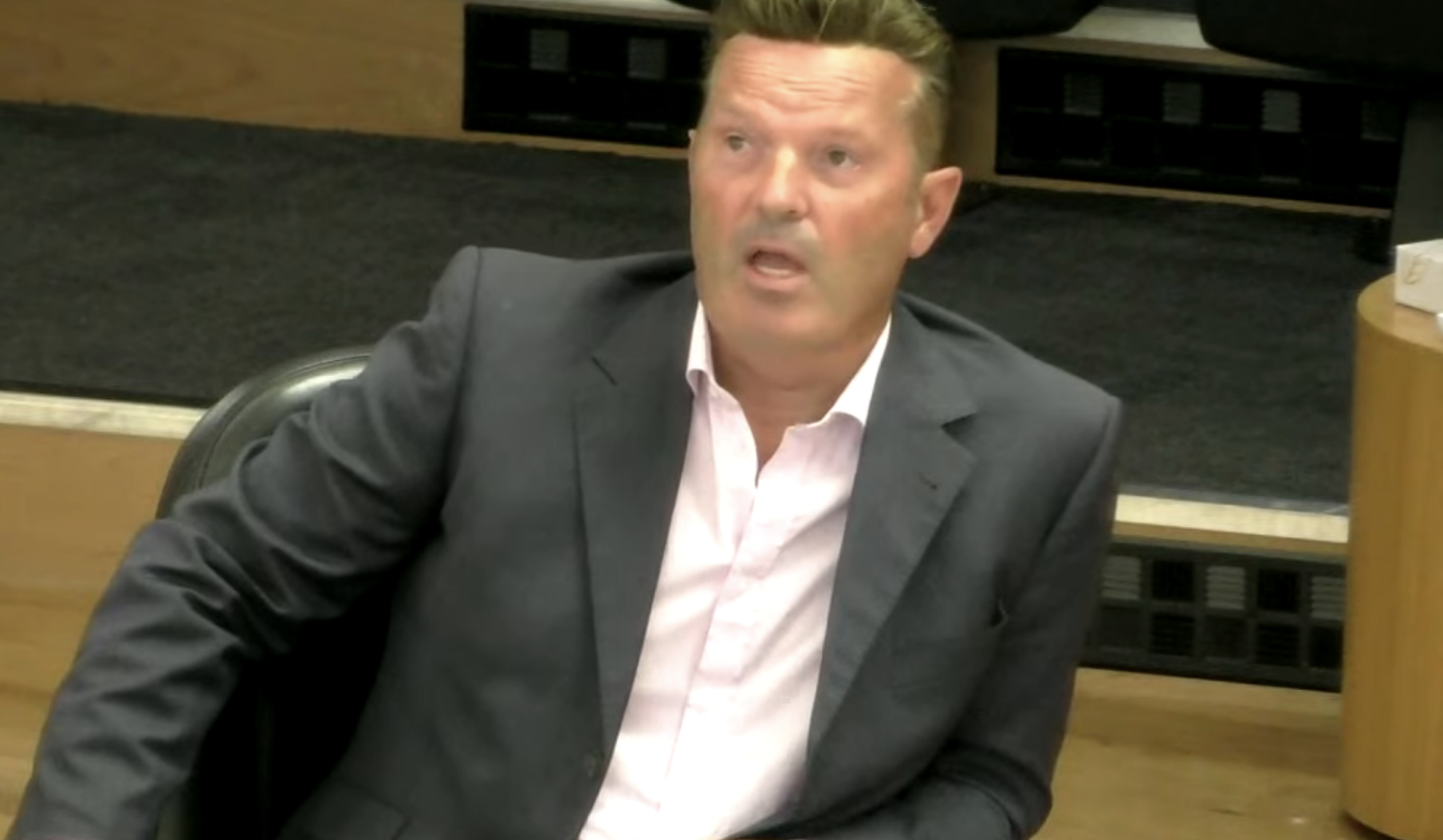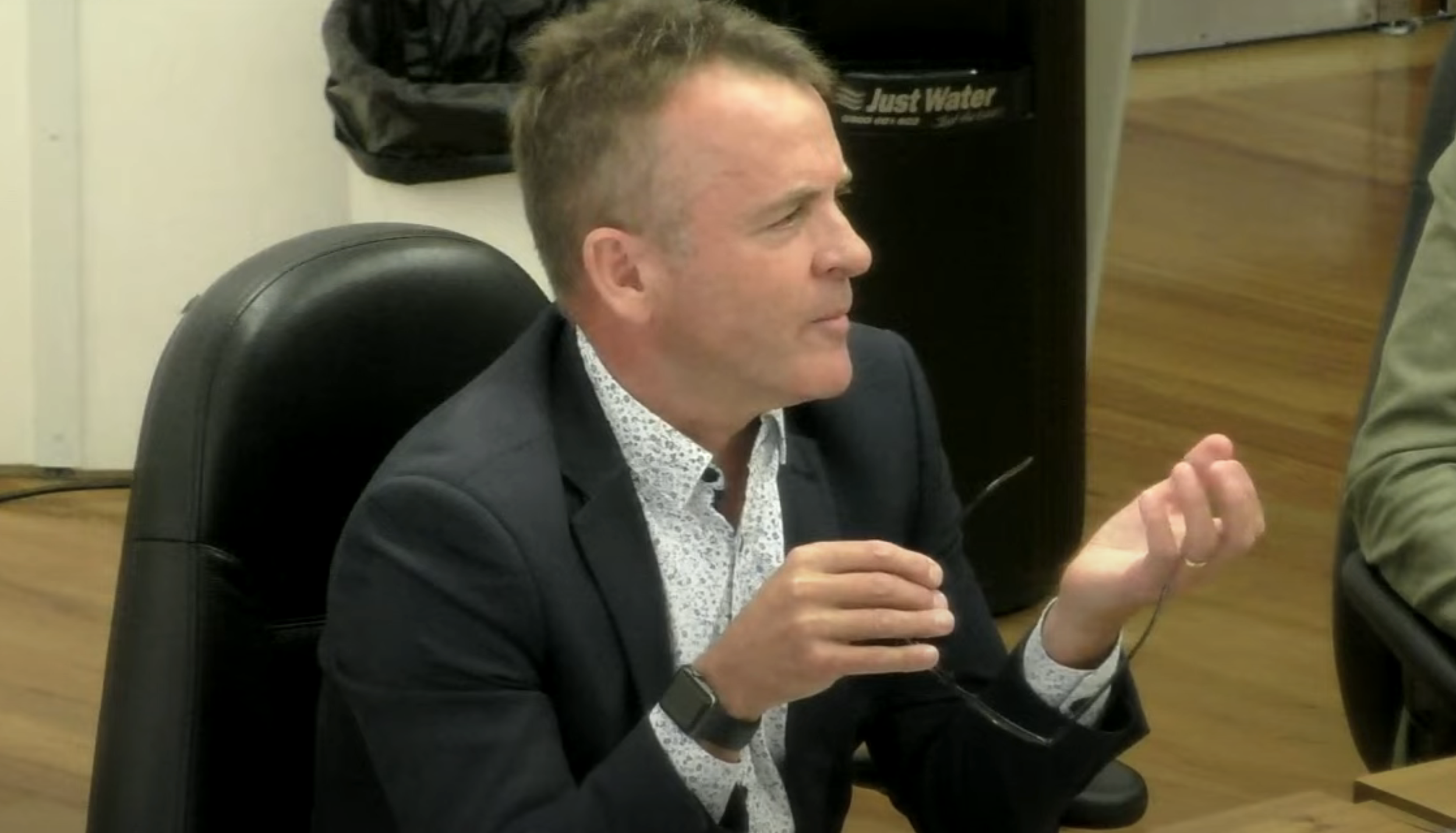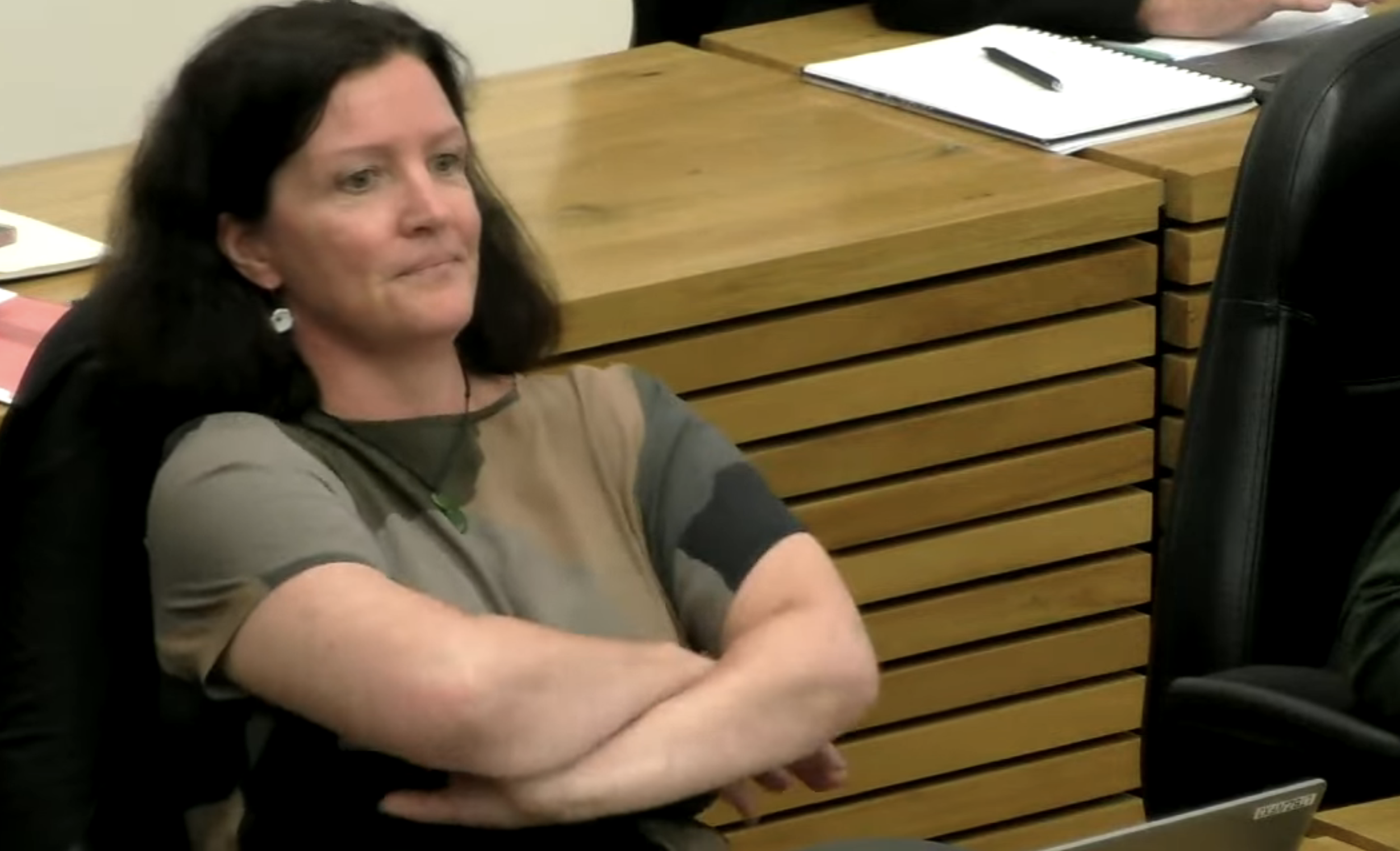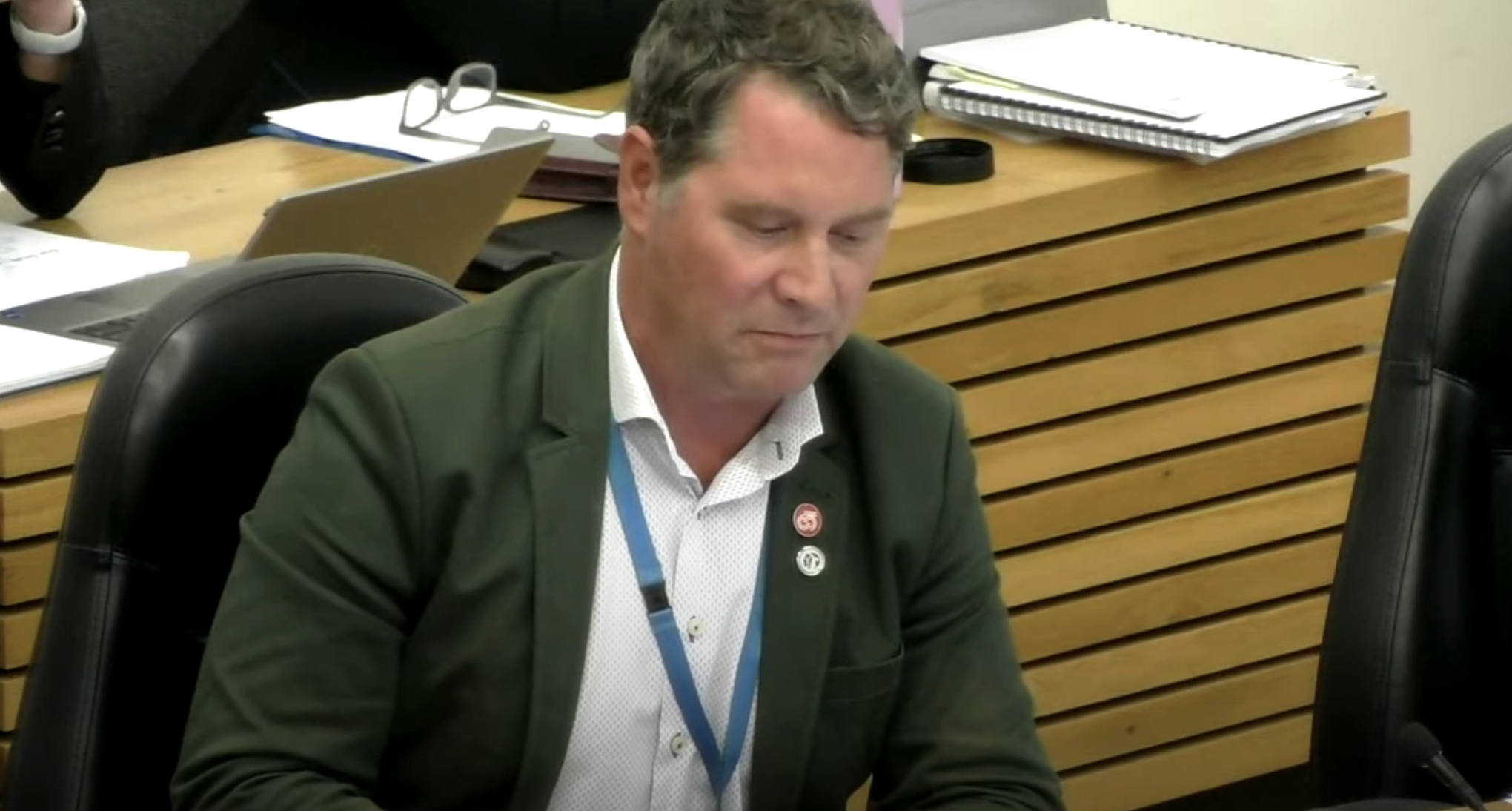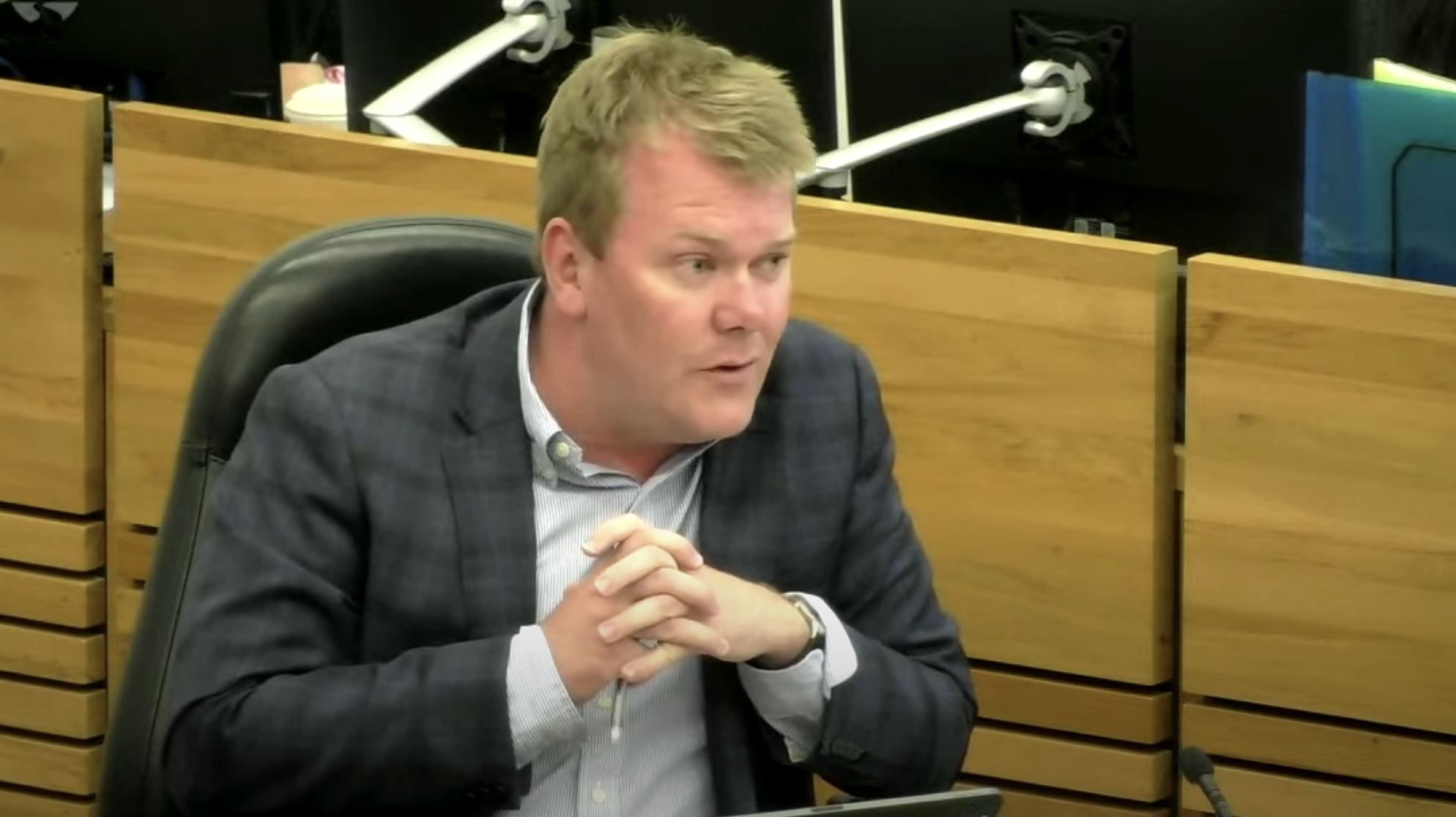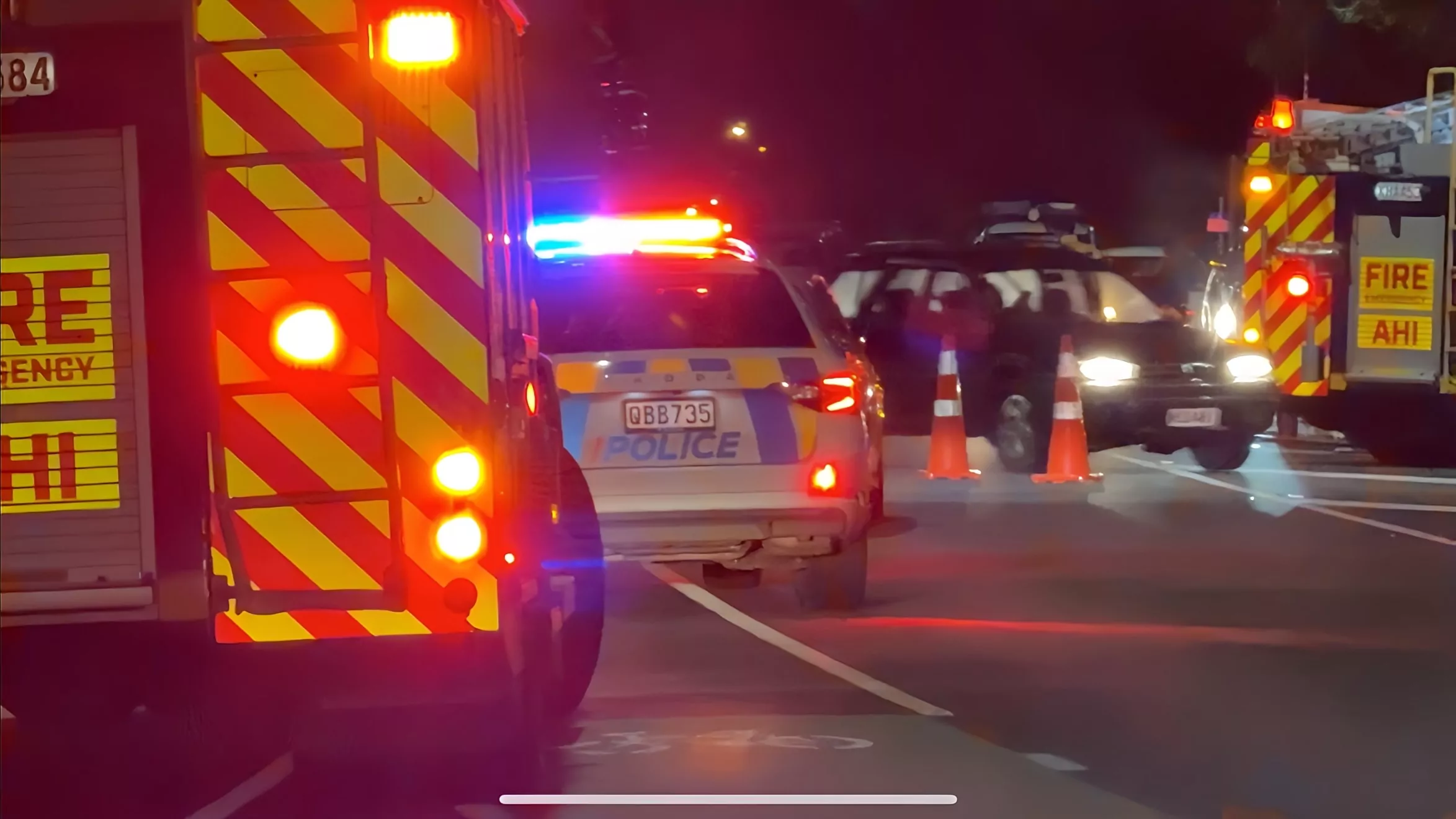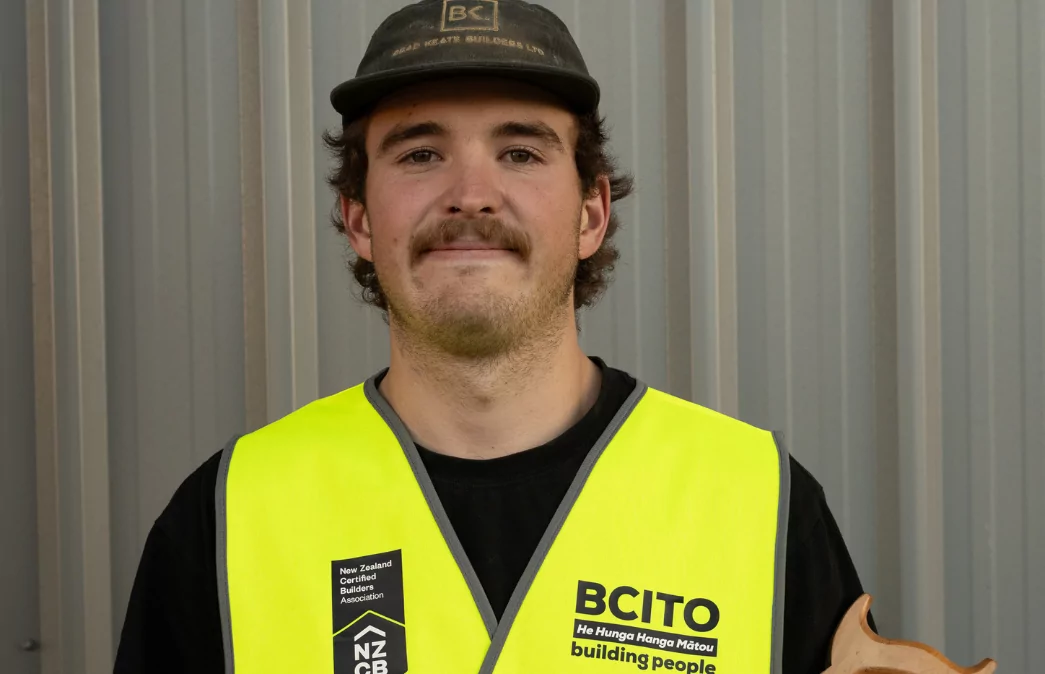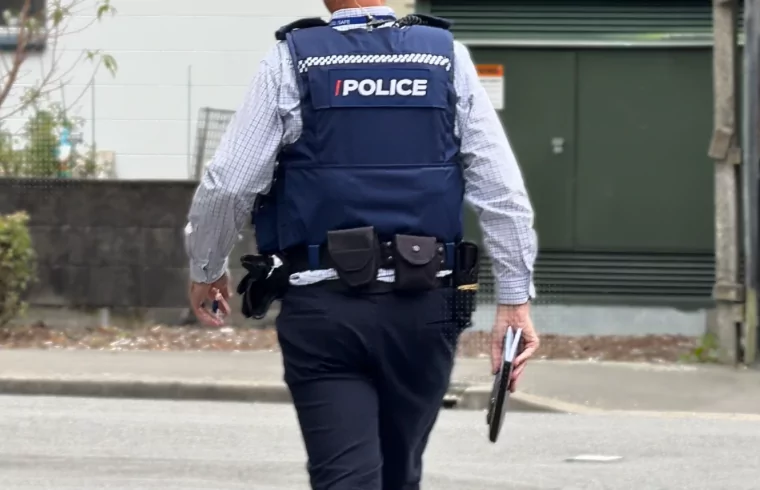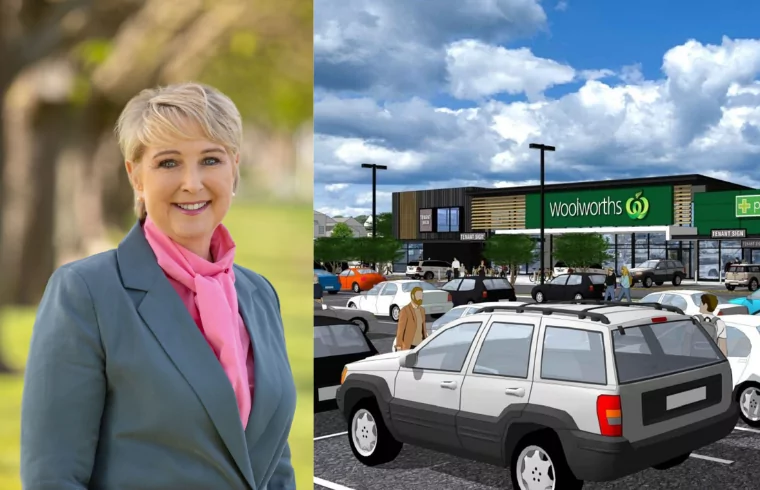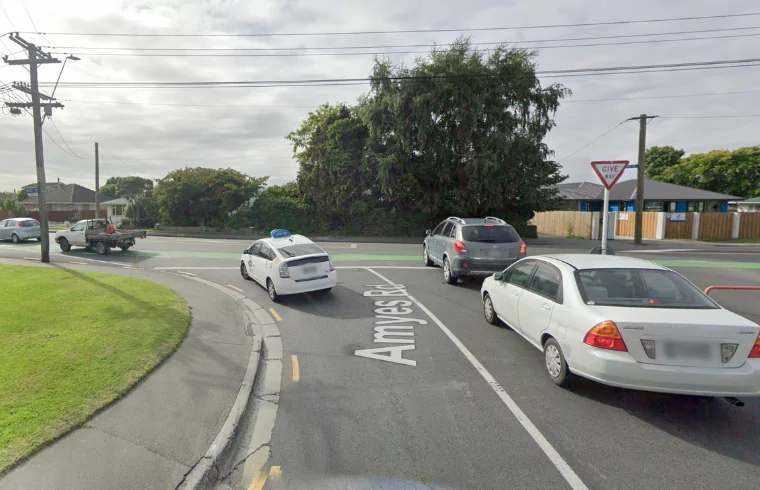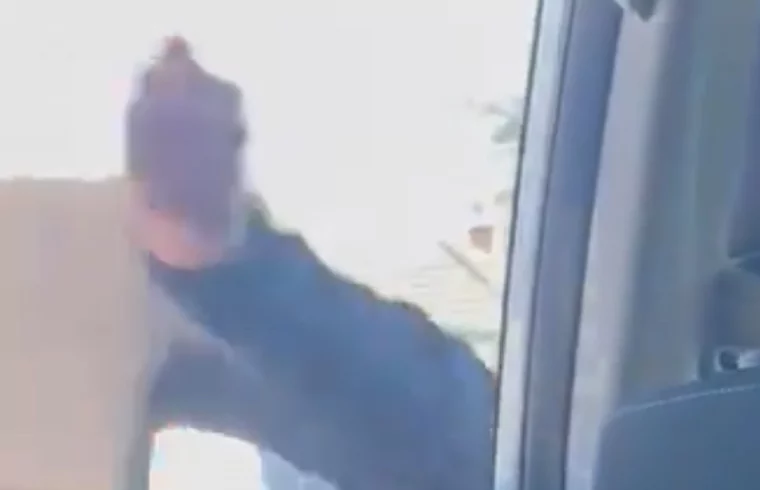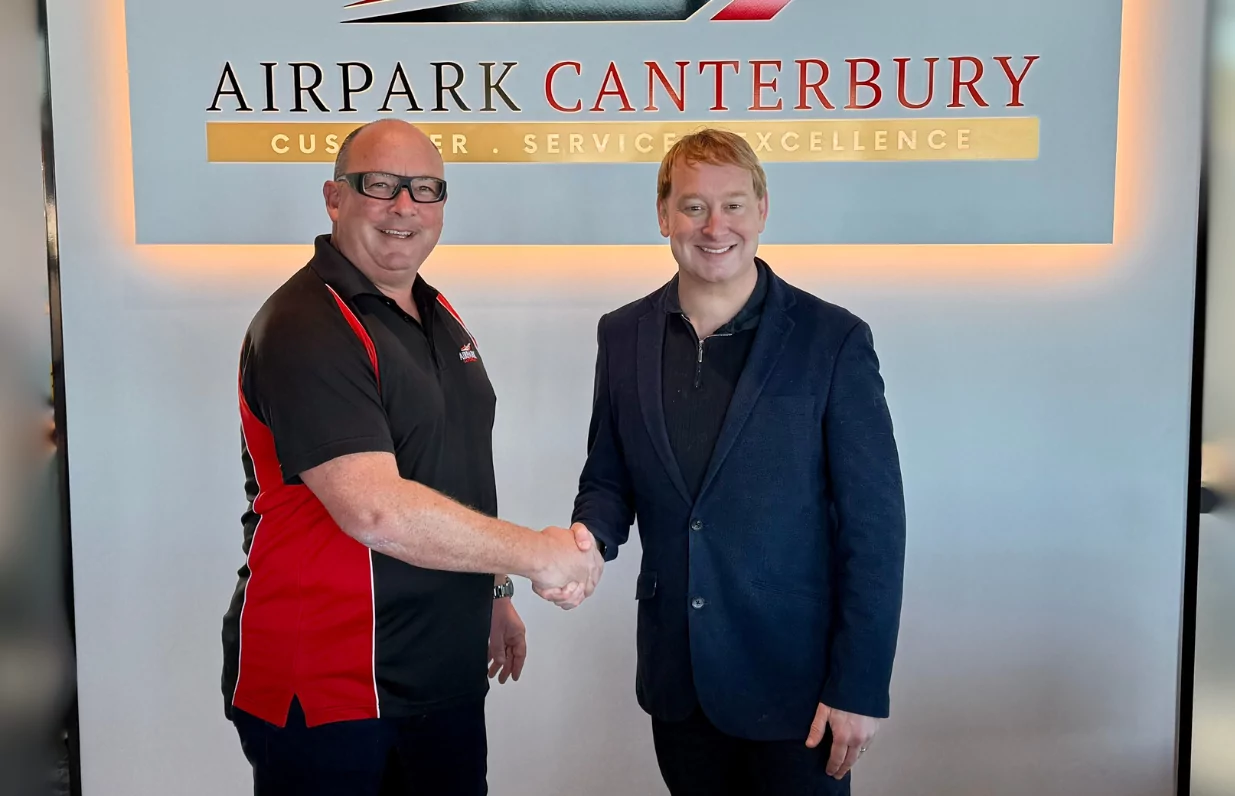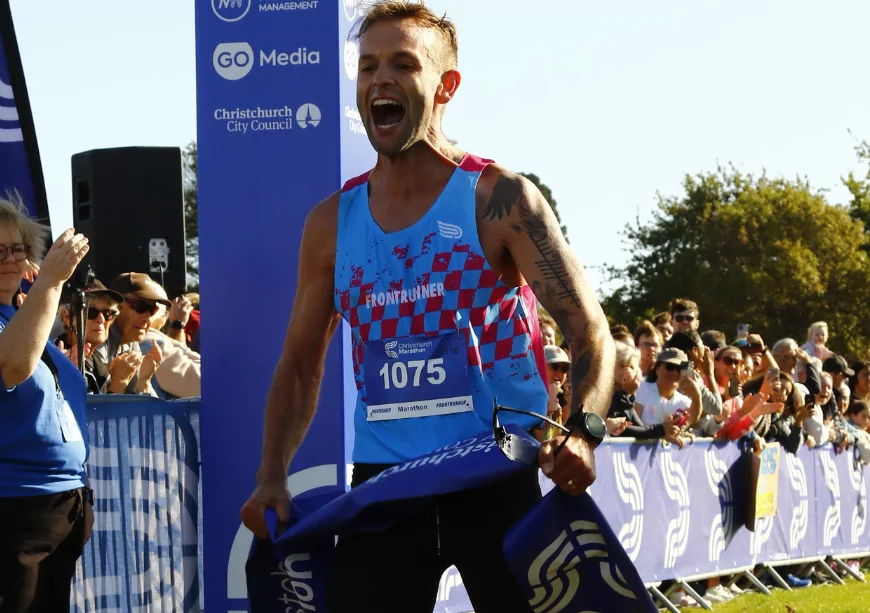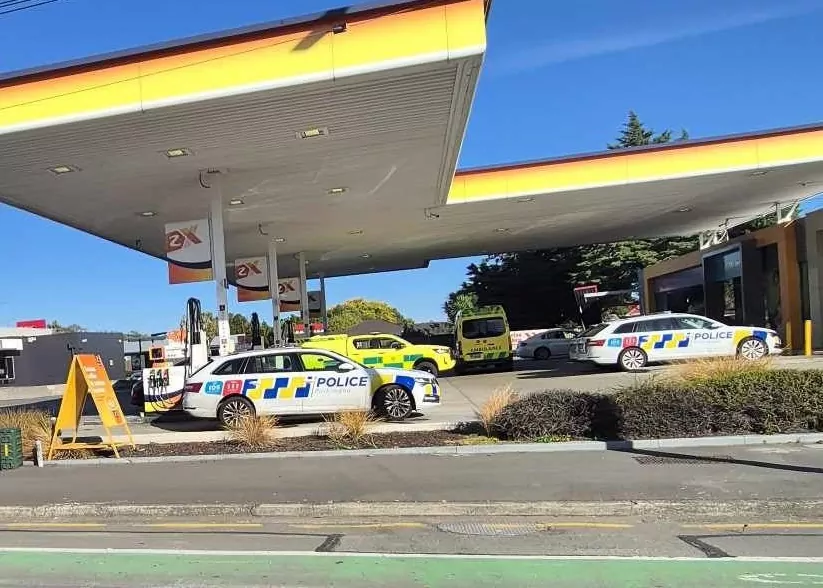Christchurch City Council Chambers
Christchurch City Councillors have voted to put the council’s long term plan, which includes a 13.24 percent rate increase, out for public consultation.
During this afternoon’s discussion, Councillor Yani Johanson highlighted the city’s struggle with broken infrastructure, a lingering aftermath of the earthquake.
“We’ve got a massive amount of broken infrastructure that still hasn’t been fixed.”
He voiced concerns over the mismatch in strategies between the council and central government post-earthquake, leading to temporary patch repairs rather than comprehensive renewals.
“It’s costing us a fortune in terms of reactive maintenance,” he added, worried about the lack of budget for necessary renewals and calling it a “false economy.”
Councillor Aaron Keown say double digital rates increases would be so hard on people
Councillor Aaron Keown expressed his dissatisfaction with the council’s efforts to mitigate costs, labelling the rate rise as “truly unacceptable.”
He spoke of the importance of aligning with the community’s sentiment.
“When we hear from the people of Christchurch, I hope that I’ll have a mandate to vote with the people of my ward and won’t be supporting a double figure rates rise.”
Councillor Celeste Donovan advocated for the completion of the city’s cycleway network, especially to New Brighton, to provide diverse transport options.
“I don’t want to be getting caught up in conversations about making cuts and the false argument about fiscal prudence,” Donovan said.
Councillor Andrei Moore questioned the council’s efficiency. “It feels like we’re asking the public in many ways to do our job for us,” Moore pointed out, highlighting the gap between election promises and actual budgetary transparency.
Councillor Mark Peters voiced concerns over spending on “over-engineered cycleways” and stressed the need for cost-effective solutions amid significant rate increases.
“We need to try and trim our cloth and find smarter and cheaper ways to do things,” Peters argued.
Councillor Jake McLellan emphasised the importance of moving forward with the budget process to engage public consultation, regardless of differing opinions on the content.
“We must make sure that we at least pass a draft budget to talk to the public about.”
Councillor Tyla Harrison-Hunt called for accountability and transparency among elected members, challenging her peers to demonstrate how they plan to achieve their proposed solutions.
“If you say we need to go down to 6%, then show the community how you do it.”
Councillor Kelly Barber expressed concerns over the proposed rate increase, reflecting on his pre-council assumptions about acceptable rate hikes.
Councillor Kelly Barber
“I despair at the fact that we’re going to increase rates by 13.24%.”
Councillor Sara Templeton wants a $152 million “climate fund”
Councillor Sara Templeton said “safe drinking water supply is the lifeblood of any city and ours is creaking and leaking and I’ve not seen a plan to fix it.
“We can certainly not afford for our water infrastructure to get so bad that it fails. We have seen elsewhere, the community and economic impact of that. And so at this stage, I’m unable to support this going out to the community in its current state.”
Councillor Tim Scandrett said “maybe we’ll get some really good feedback from ratepayers, that it is more important now to look at climate change as a whole, particularly following the Port Hills fires, rather than putting all our emphasis on coastal hazards, but that is for our ratepayers to feedback and tell us.”
Councillor Tyrone Fields
Councillor Tyrone Fields said “the people of Banks Peninsula have signalled that the impact of climate change is by far the most important issue on the peninsula.”
Councillor Victoria Henstock said “the rates burden is really real for our residents. We’re hearing from them time and time again, and we are expecting them to make some really tough decisions about their own household budgets.
“They’ll be having to make some sacrifices and I’m not convinced that we’ve made enough sacrifices ourselves and I’m going to find it difficult to support a double digit rates increase.”
Councillor Melanie Coker said she was concerned that was not enough focus on climate change mitigation.”
I encourage the public to think about not just the cost of things now, but the value into the future.”
Councillor James Gough said the proposed rates increase was “shameful.”
He urged the public to speak up. “Tell the council where the priorities are wrong. Tell the council where this duplication or where items are occurring that are completely unnecessary, or if there’s things that the council should entirely rethink.”
Councillor Sam MacDonald said “the last thing we’d want to do would be to vote down a draft plan that doesn’t let the people have their say I think it would be irresponsible for people in leadership positions to oppose a plan that they don’t want to hear from the public.”
Deputy Mayor Pauline Cotter said “we’ve all worked hard to keep rate increases low as we can while at the same time keeping the momentum going for Christchurch City, a city that’s fast becoming the best city in New Zealand, or possibly already is a great place to live, work, play and invest.
Mayor Phil Mauger said “we need the people alongside us as we plot out our next decade.”
Councillor Templeton also wanted a ring-fenced $152 million “climate fund” for the LTP, despite not voting to put it out for consultation.
Councilor McLellan said “when you have proposals in the consultation document, and you’re seeking to get outcomes from as a result of the consultation and as a result of the final, I think you do have a responsibility to meet their legal obligation and consult with people and pass a budget.”
Councillor Sam MacDonald
Councillor MacDonald said “the reality is it doesn’t remove the fact that it’s still a shonky idea.
“I will still put it out to public because it is good that they have their say, but make no mistake, I think if we’re going to talk about actually delivering on issues around climate change, then simply setting up funds like this, which in my view, virtue signal are not the way forward.
“The reality is we need tangible work that’s been embedded through the long term plan, which is what we’ve done, and that will deliver on it. I would just really hope that people come in with tangible results with actual outcomes and lists of the virtue signalling” MacDonald said.
